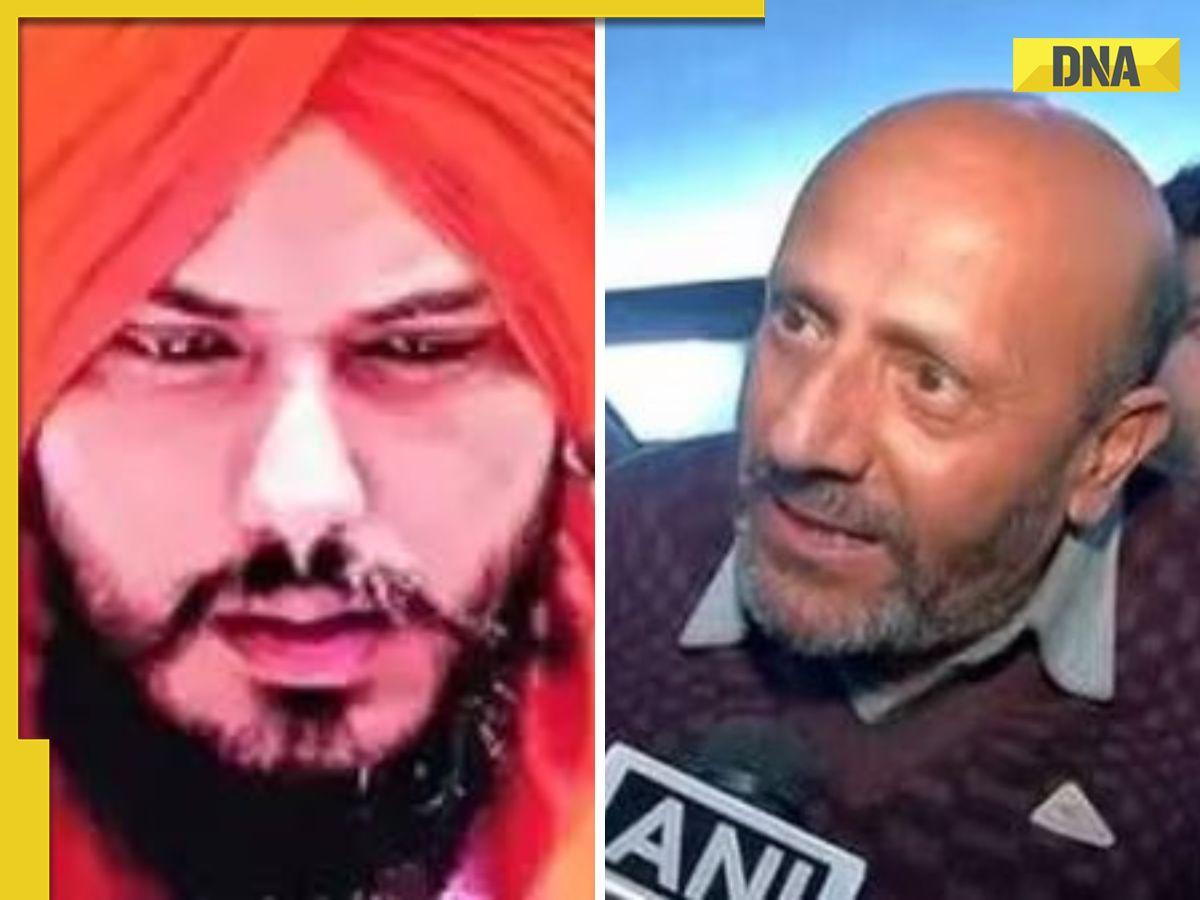
In a highly secure environment, the Parliament complex witnessed the swearing-in of two controversial figures as members of the 18th Lok Sabha on Friday. Radical Sikh preacher Amritpal Singh and Kashmiri leader Sheikh Abdul Rashid, both of whom were granted special parole to administer their oaths of office, took their seats amid strict security arrangements.
Engineer Rashid, currently detained in Delhi’s Tihar jail under charges linked to terror funding through the Unlawful Activities (Prevention) Act, made his way to the Parliament building under the watchful eyes of numerous security personnel. Amritpal Singh, apprehended and confined in Assam’s Dibrugarh prison under the stringent National Security Act, also arrived under heavy guard. Their journey to the Parliament itself was an event marked by significant police coordination and security measures.
Sources within the Parliament disclosed that Singh, aged 31, and Rashid, aged 56, were escorted to the Lok Sabha speaker’s chamber where they completed the necessary formalities and took their oaths. They emerged victorious in the recent Lok Sabha elections, representing Khadoor Sahib in Punjab and Baramulla in Jammu and Kashmir, respectively, as Independent candidates, despite being behind bars.
Due to their incarcerations, both MPs-elect were unable to participate in the formal swearing-in ceremonies held on June 24 and 25 with other newly elected candidates. Their parole arrangements were meticulously planned to allow them to fulfil their parliamentary duties without compromising security protocols.
Engineer Rashid’s parole was particularly time-sensitive, granting him a strict two-hour window, excluding travel time between Tihar and the Parliament complex. In contrast, Singh was permitted a four-day parole period, starting from July 5, to account for travel between Assam and Delhi. Explicit conditions accompanied their parole releases, prohibiting both from making any public statements or engaging with the media. Moreover, their family members were also barred from making any media statements during this period. However, Singh’s parole permitted him to meet his family in Delhi, while Rashid’s family could only attend his oath-taking ceremony.
The judicial processes leading to their paroles underscore the sensitivity of their cases. Rashid has been imprisoned since 2019, following an arrest in 2017.
. His parole was sanctioned by a Delhi court. Meanwhile, Amritpal Singh’s release was authorized by the District Magistrate of Amritsar, where Singh faced arrest in April 2023 after a violent altercation at a police station intended to rescue an associate from custody.
Both Singh and Rashid are accompanied by security personnel at all times during their parole periods, as stipulated in their release orders. This directive underscored the gravity of their cases and the necessity for stringent oversight during their temporary release.
For the parliamentary procedures, the Delhi Police and Punjab Police received direct instructions to coordinate with the secretary-general of the Lok Sabha to ensure smooth execution of duties within the Parliament complex.
The cases of both MPs are deeply embedded within broader national security concerns. Rashid’s name surfaced during investigations into the activities of Kashmiri businessman Zahoor Watali, who faced accusations of financing terrorist factions and separatists in Kashmir. The National Investigation Agency (NIA) filed comprehensive charges against several individuals, including Rashid, in connection to these activities. Notable figures in these charges include Kashmiri separatist leader Yasin Malik, Lashkar-e-Taiba founder Hafiz Saeed, and Hizbul Mujahideen chief Syed Salahuddin. Yasin Malik, in particular, received a life sentence from a trial court in 2022 after confessing to the charges.
Amritpal Singh’s notoriety stems from his admiration for the slain Khalistani militant Jarnail Singh Bhindranwale. Singh leads the ‘Waris Punjab De’ outfit and is detained alongside nine associates under the National Security Act. His arrest in April followed a brazen attempt to free an aide from police custody, leading to a violent clash with law enforcement personnel.
While the oath-taking ceremonies underscore the complexity of Indian politics, they also highlight the stringent measures adopted to maintain order and security. These events serve as a stark reminder of the challenges faced by the nation in balancing democratic processes with overarching security imperatives.












